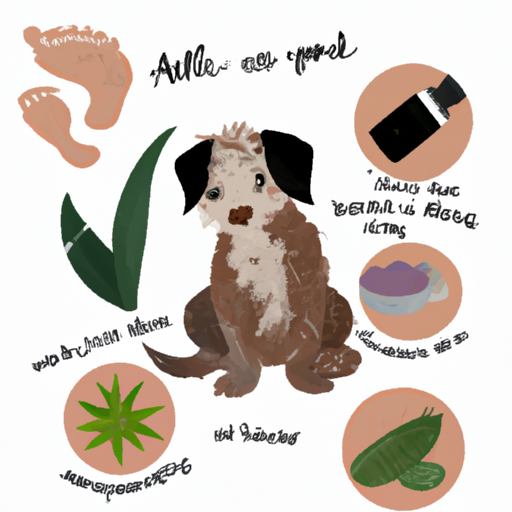As a devoted pet parent, seeing your furry friend scratching incessantly can be distressing. Not only is it uncomfortable for your dog, but it can also lead to more serious complications if left untreated. Understanding what you can put on your dog’s itchy skin can help in providing immediate relief and prevent further issues.
- Table of Contents
- Causes of Itchy Skin
- Home Remedies for Itchy Skin
- Over-the-Counter Remedies
- Prescription Treatments
- Prevention and Maintenance
-
Frequently Asked Questions
-
Key Takeaways
- Identify the cause of your dog’s itchiness to choose the most effective treatment.
- Home remedies like oatmeal baths and coconut oil can provide temporary relief.
- Over-the-counter anti-itch products can also be used.
- In severe cases, prescription treatments may be necessary.
- Regular grooming and a healthy diet can prevent itchy skin.
- Consult a vet if your dog’s itchiness persists or worsens.
Causes of Itchy Skin
Before diving into possible remedies for your dog’s itchy skin, it’s important to understand what might be causing the itchiness in the first place. Common causes include fleas, allergies, and skin infections. Environmental factors, such as dry air or certain types of grass, can also contribute to skin irritation.
In some cases, constant scratching can lead to hot spots, which are red, inflamed areas of skin that can become infected if not treated. This article from the American Kennel Club provides more information on hot spots and how to treat them.
Home Remedies for Itchy Skin
If you’re looking for a quick and natural way to soothe your dog’s itchy skin, consider these home remedies:
-
Oatmeal Bath: Oatmeal has natural anti-inflammatory properties that can help soothe itchy skin. Simply blend a cup of plain oatmeal into a fine powder and mix it into a warm bath. Let your dog soak for about 10 minutes.
-
Coconut Oil: This is a great natural moisturizer that can help soothe dry, itchy skin. Apply it directly to your dog’s skin and massage it in.
-
Apple Cider Vinegar: Dilute apple cider vinegar with water and use it as a spray to help relieve itchiness. However, avoid using it on open wounds as it may sting.
Remember, while these remedies can provide temporary relief, they may not treat the underlying cause of your dog’s itchiness. Consult with a vet for a more comprehensive treatment plan. This blog post from One Top Dog has some additional tips for dealing with itchy skin at home.
Over-the-Counter Remedies
Over-the-counter products can also provide relief for itchy skin. Anti-itch shampoos, creams, and sprays containing ingredients like hydrocortisone can help reduce inflammation and soothe itchy skin. Always follow the instructions on the product’s label and consult a vet if you’re unsure about anything.
Prescription Treatments
In severe cases or if your dog’s itchiness is due to a more serious condition like a skin infection or allergies, prescription treatments may be necessary. These can include antibiotics, steroids, or allergy medication. Always consult with a vet before starting any new medication.
This guide from One Top Dog provides more information on identifying and treating dog allergies, a common cause of itchy skin.
Prevention and Maintenance
Preventing itchy skin is just as important as treating it. Regular grooming, including brushing and bathing, can help keep your dog’s skin and coat healthy. Feeding your dog a balanced diet rich in omega-3 fatty acids can also improve skin health. This article offers more tips on proper dog nutrition.
Frequently Asked Questions
-
Can I use human anti-itch products on my dog?
While some human products may not harm dogs, it’s always best to use products formulated specifically for dogs. Some ingredients in human products may be harmful to dogs. -
How can I prevent my dog from scratching?
Regular grooming, a healthy diet, and flea prevention can all help prevent itchy skin. If your dog is still scratching, consult a vet to identify the underlying cause. -
Should I take my dog to the vet for itchy skin?
If your dog’s itchiness persists, worsens, or is accompanied by other symptoms like redness, inflammation, or hair loss, it’s best to consult a vet.
Remember, your dog’s health and comfort are paramount. Consult a vet if you have any concerns about your dog’s itchy skin. With the right care and attention, your furry friend can lead a happy, itch-free life!



